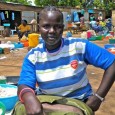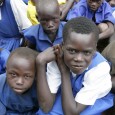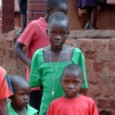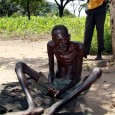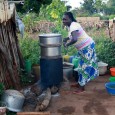Our Mairo Primary School Project will give hope to war orphans and vulnerable children in Omilling village. When the remote community has its own school, children will no longer have to trek eight hours round trip on foot to get an education.
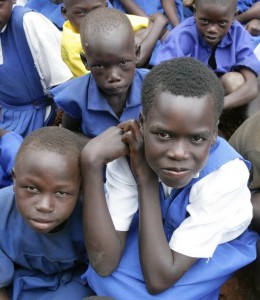 The Challenge
The Challenge
Since the signing of the peace agreement in 2005, Omilling village has seen an influx of returning refugees and Internally Displaced Persons (IDPs), including hundreds of war orphans and former child soldiers. The only school the village has to serve several thousand elementary-aged students is a small two-room temporary shack made out of twigs. The shack, used for early elementary, has no text books and no pit latrines (giving the school grounds an unpleasant odor). Once children pass their exams to start primary 4, they must trek eight hours round trip on foot through the wild bush to the nearest primary school, which is 70 kilometers away. Almost no families allow their daughters to make this trek.
Our Solution
Our Mairo Primary School Project will build permanent school facilities made with soil blocks and thatched roofs. The school facilities—providing free primary education to young children and literacy and life skills training to young adults—will be built in four phases. Phase one will consist of four classrooms, three modest teacher’s chalets (to house volunteer teachers from other regions in Sudan and outside the country), one pit latrine, and one store. Phase two will consist of four more classrooms, three more teacher’s chalets, one pit latrine, and one office. Phase three will consist of two teacher’s chalets, one pit latrine, and one library.
Potential Long-Term Impact
Enabling the children of Omilling to study at their own local school will give them a ticket out of poverty. Educated girls will eventually be able to give their own families a good start in life. Educated boys will be able to escape a family cycle of hard labor. This will ripple to their families and community.

